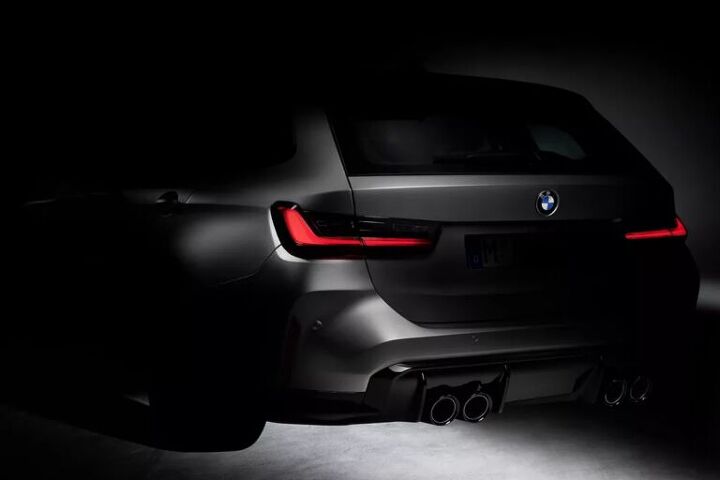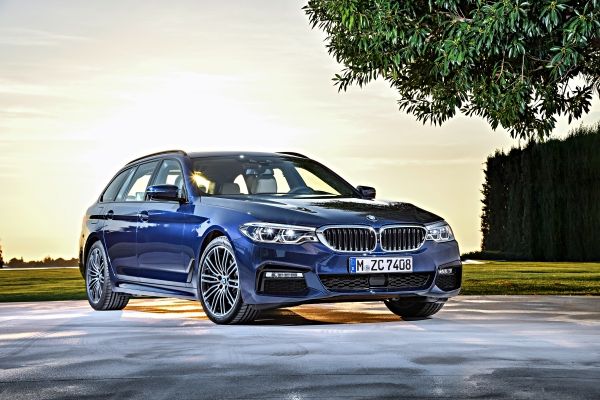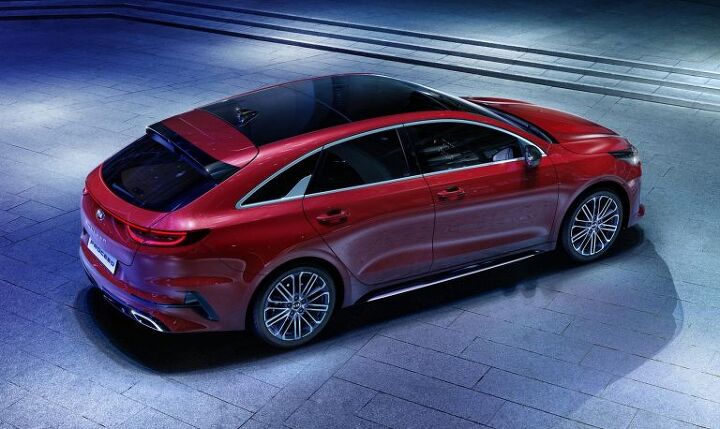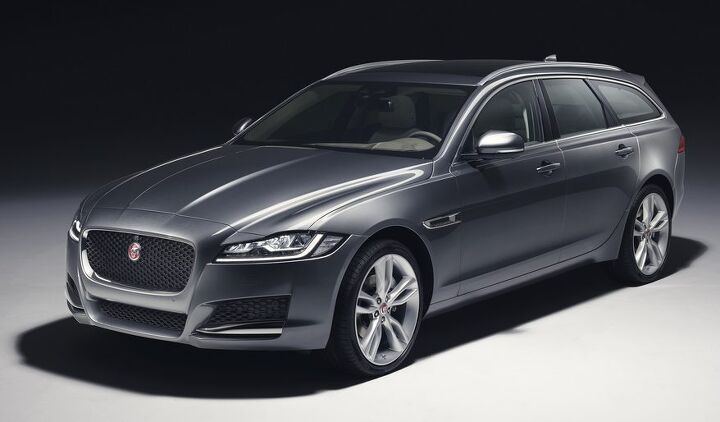#EstateCars
BMW Building M3 Wagon, Teases Juicy Rump
BMW teased the M3 Touring today, surprising just about everyone, as no one outside the company actually knew it was planning to build a wagon version of the car. Rumors of substance had been circulating for about a month, since we live in the information age, but it’d be a new trick for the M3.
Obviously, we’re going to gush about it because people who write about cars tend to gravitate toward fun vehicles that fly under the radar. Any advantage you can give yourself against the watchful eyes of highway patrol are always welcome, and there’s just something about a quick wagon that makes you feel unique — even if owning one doesn’t automatically make it true.
American BMW Dealers Prioritize Product, Ask for Wagons
BMW had a decent 2019, besting historic rival Mercedes-Benz with 324,826 U.S. deliveries — a 4.4-percent improvement over the previous year. The brand expects more good news in 2020 as new product begins to hit its stride and more models start arriving. While the company currently enjoys an almost even sales breakdown between cars and crossovers, BMW National Dealer Forum Chairman Patrick Womack said its Westernmost offerings could be further refined.
U.S. dealers want a sumptuous German wagon to compete with European marques already providing one.
The 2019 Kia ProCeed: You're Never Gonna Get It
When an automaker decides to launch a new station wagon in Europe, it’s usually a pretty safe assumption that we won’t see it in North America. Kia’s new ProCeed, scheduled for a public debut at the Paris Motor Show next month, is the latest example of this relentless phenomenon.
Still, while we’re annoyed we have to go without yet another Eurowagon, maybe this wasn’t the one for us.
Making an Estate-ment: Volvo Updates the V60 Wagon for 2019
Volvo simultaneously took a trip down memory lane while keeping its eyes on The Future™ when it unveiled the new V60 this week. Remember when Volvo was synonymous with practical wagon-based transportation for upstanding middle-class families? Those days are here again; but they are also gone, as the brand has transformed itself by offering models with exquisite styling, improved performance, and gobs of tech.
These are no longer nice square cars for nice square people. They’re sex machines intended for people who want to make a statement about who they are — and may happen to have children. But Volvo hasn’t abandoned its recipe entirely. It’s still a bit of an odd duck as European manufacturers go, and it’s still building desirable station wagons.
While many of them border on the crossover category, the company has stuck with estate cars, the V90 being the biggest jewel in that particular crown. The new V60 is essentially a scaled-down and more affordable version of that model. In fact, you’d be hard pressed to tell them apart without careful inspection.
I Like Big Boots: Jaguar's U.S.-bound XF Sportbrake Now Has a Price
It’s always nice to see a station wagon in North America. Crossovers may have caught on faster than fidget spinners in a wildfire, but they’ll never be able to offer the same diving dynamics of a lower-slug automobile — leaving room for wagons to persist.
Likewise, rebranding estate cars as shooting brakes or “sportbrakes” is helping give the niche segment some much-needed panache, extending its appeal beyond the true believers. Wagons have long since become an endangered species in certain parts of the world but, thanks to conservation efforts from several carmakers, we might not lose them entirely.
One of those companies is Jaguar. It has yet to abandon the cargo-happy bodystyle and has even seen fit to bring the XF Sportbrake to the United States for the very first time — possibly because it realizes wagon lovers are now one of the most underserved demographics in autodom.
2018 Mercedes-AMG E63 S Wagon is 603 Horsepower of Family-Oriented Fun
With Cadillac’s CTS-V Wagon dead and buried, unorthodox — yet highly practical — automotive enthusiasts have been at a severe disadvantage in North America. Europe always seems to have at least a couple overpowered “estate cars” while we’re left pretending that a compact four-door Golf R is a replacement for a tuned-up 5 Series Touring or RS6 Avant.
God bless Mercedes-Benz and AMG for understanding there are still some wealthy Americans that want to load a station wagon with a half-dozen pure bred Labradors or ten bolts of Egyptian cotton (or whatever rich people put in their cars) and drive it 180 mph down an expressway.
For that highly discerning clientele, the all-new 2018 Mercedes-AMG E63 S wagon will be arriving this autumn.





















Recent Comments